Make A Donation
Click Here >
Posts Tagged: extractive industries
September 9, 2019
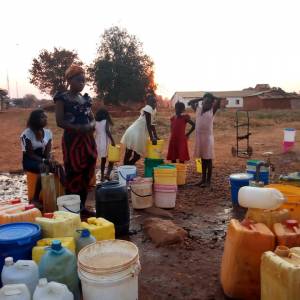 New mining regulations in the Democratic Republic of Congo favor the development of local communities By Jean Marie Kabanga | POM, Joining Hands Network in the Democratic Republic of Congo In the Democratic Republic of Congo (DRC), it has been common for local communities to bear the brunt of the negative impacts of the mining… Read more »
New mining regulations in the Democratic Republic of Congo favor the development of local communities By Jean Marie Kabanga | POM, Joining Hands Network in the Democratic Republic of Congo In the Democratic Republic of Congo (DRC), it has been common for local communities to bear the brunt of the negative impacts of the mining… Read more »
March 13, 2019
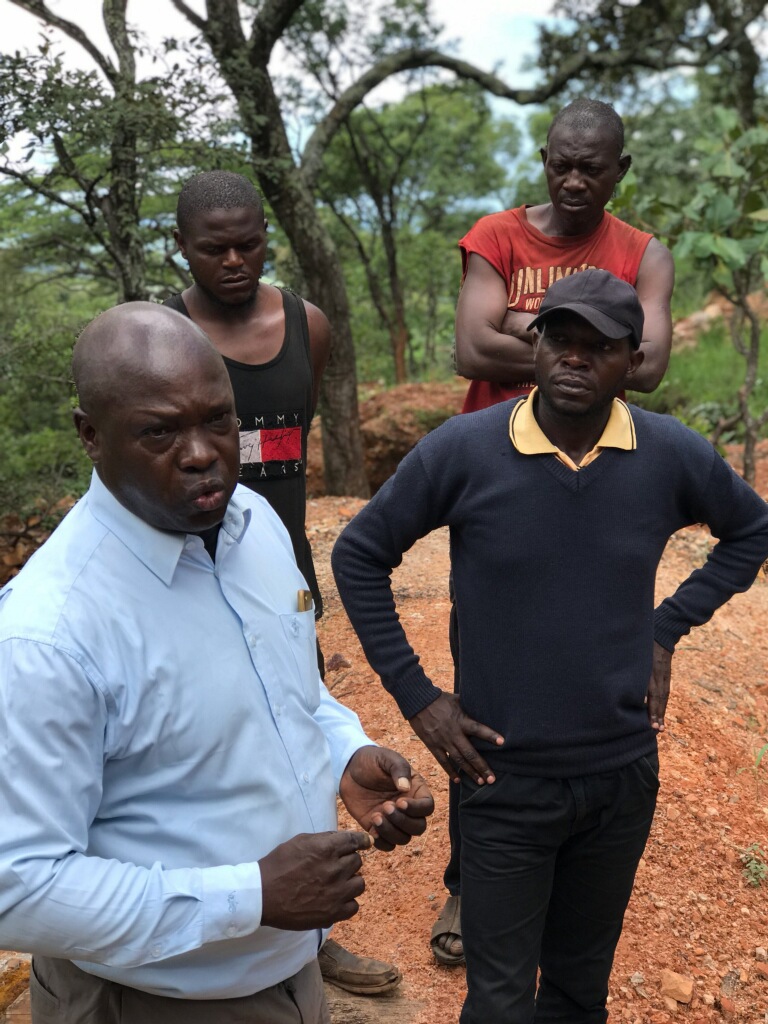 Communities affected by mining now involved in mining contract negotiations By Jean Marie Kabanga | POM, Joining Hands DR Congo The Mining Code for the Democratic Republic of Congo was revised and published on March 09, 2018 and the Mining Regulations that followed on June 8, 2018 offered a new glimmer of hope for… Read more »
Communities affected by mining now involved in mining contract negotiations By Jean Marie Kabanga | POM, Joining Hands DR Congo The Mining Code for the Democratic Republic of Congo was revised and published on March 09, 2018 and the Mining Regulations that followed on June 8, 2018 offered a new glimmer of hope for… Read more »
March 12, 2019
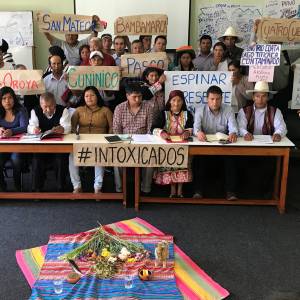 Populations contaminated by industry work together for environmental and human health protections By Javier Jahnke | Red Muqui To date, in Peru, there are at least 4,867 people, many of whom are children, from 17 regions of the country including indigenous peoples’ territories, affected by diverse sources of contamination from various industries, including toxic metals… Read more »
Populations contaminated by industry work together for environmental and human health protections By Javier Jahnke | Red Muqui To date, in Peru, there are at least 4,867 people, many of whom are children, from 17 regions of the country including indigenous peoples’ territories, affected by diverse sources of contamination from various industries, including toxic metals… Read more »
November 21, 2018
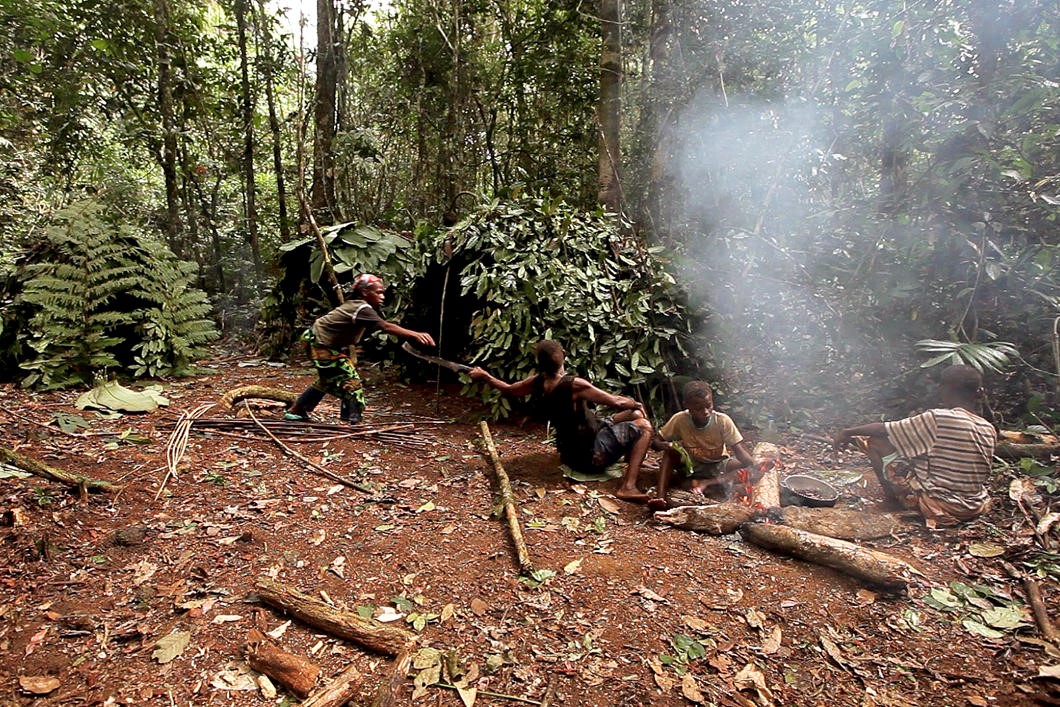 Large-scale development projects destroy property and livelihoods By Jaff Bamenjo with contributions from Prosper Kouayep and Jacques Bile | RELUFA, Joining Hands Cameroon Since 2000, large-scale development projects have been on the rise in Cameroon. The implementation of oil pipeline, road , port infrastructure and agribusiness projects have resulted in the destruction of property and… Read more »
Large-scale development projects destroy property and livelihoods By Jaff Bamenjo with contributions from Prosper Kouayep and Jacques Bile | RELUFA, Joining Hands Cameroon Since 2000, large-scale development projects have been on the rise in Cameroon. The implementation of oil pipeline, road , port infrastructure and agribusiness projects have resulted in the destruction of property and… Read more »
August 24, 2018
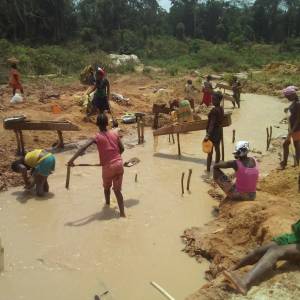 Families abandon farms and schools for small-scale mining only to be trapped in a cycle of poverty By Jaff Bamenjo | RELUFA, Joining Hands Cameroon Artisanal mining, or small-scale mining using limited machinery, is the only direct means through which local communities can benefit economically from the mineral endowments of their country. In the east… Read more »
Families abandon farms and schools for small-scale mining only to be trapped in a cycle of poverty By Jaff Bamenjo | RELUFA, Joining Hands Cameroon Artisanal mining, or small-scale mining using limited machinery, is the only direct means through which local communities can benefit economically from the mineral endowments of their country. In the east… Read more »
February 13, 2018
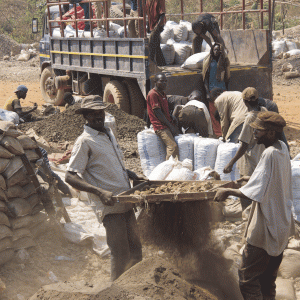 Civil society works to revise the mining code so that communities benefit from increased mining investment By Jean Marie Kabanga | Joining Hands DR Congo Since the enactment of the new mining code of the Democratic Republic of Congo in 2002 and the implementation of its mining regulations in 2003, promises for the development of local communities… Read more »
Civil society works to revise the mining code so that communities benefit from increased mining investment By Jean Marie Kabanga | Joining Hands DR Congo Since the enactment of the new mining code of the Democratic Republic of Congo in 2002 and the implementation of its mining regulations in 2003, promises for the development of local communities… Read more »
February 9, 2018
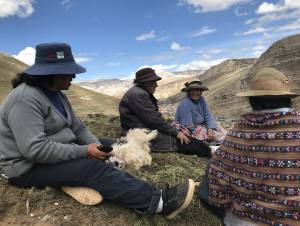 Amazonic tribes and Andean communities are celebrated by Pope Francis as models for caring for our Common Home By Jed Koball | Mission Co-worker Peru On a hot and humid January day, gathered in the town of Puerto Maldonado in a region of the Amazon Rainforest devastated by massive deforestation and the contamination of rivers… Read more »
Amazonic tribes and Andean communities are celebrated by Pope Francis as models for caring for our Common Home By Jed Koball | Mission Co-worker Peru On a hot and humid January day, gathered in the town of Puerto Maldonado in a region of the Amazon Rainforest devastated by massive deforestation and the contamination of rivers… Read more »
December 6, 2017
 Joining Hands networks continue to advocate for change despite the long and unpredictable road By Doris Evangelista | Coordinator of Asociacion Red Uniendo Manos El Salvador, Joining Hands El Salvador In August, I traveled from El Salvador to Peru to gather with Joining Hands leaders from Cameroon, Sri Lanka, Haiti, Bolivia, and Peru to share experiences with each other:… Read more »
Joining Hands networks continue to advocate for change despite the long and unpredictable road By Doris Evangelista | Coordinator of Asociacion Red Uniendo Manos El Salvador, Joining Hands El Salvador In August, I traveled from El Salvador to Peru to gather with Joining Hands leaders from Cameroon, Sri Lanka, Haiti, Bolivia, and Peru to share experiences with each other:… Read more »
December 5, 2017
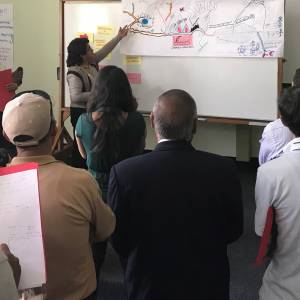 New platform of communities fighting for their rights to health present their demands to Minister of Health By Jed Koball | Mission Co-Worker, Joining Hands Peru Leaders representing eight different communities whose health is affected by mining and oil industry activity gathered for the first time this past week in Lima. Dating back as much as… Read more »
New platform of communities fighting for their rights to health present their demands to Minister of Health By Jed Koball | Mission Co-Worker, Joining Hands Peru Leaders representing eight different communities whose health is affected by mining and oil industry activity gathered for the first time this past week in Lima. Dating back as much as… Read more »
April 10, 2017
By Jed Koball In a desperate move to facilitate the sale of the Metallurgical Complex in La Oroya, Peru the Ministry of Environment (MAM) approved a significant relaxation of national sulfur-dioxide emissions by increasing the threshold from 20mg/m3 (levels recommended by the World Health Organization) to 250mg/m3 (the current standards in neighboring countries like Chile… Read more »
 New mining regulations in the Democratic Republic of Congo favor the development of local communities By Jean Marie Kabanga | POM, Joining Hands Network in the Democratic Republic of Congo In the Democratic Republic of Congo (DRC), it has been common for local communities to bear the brunt of the negative impacts of the mining… Read more »
New mining regulations in the Democratic Republic of Congo favor the development of local communities By Jean Marie Kabanga | POM, Joining Hands Network in the Democratic Republic of Congo In the Democratic Republic of Congo (DRC), it has been common for local communities to bear the brunt of the negative impacts of the mining… Read more »
 New mining regulations in the Democratic Republic of Congo favor the development of local communities By Jean Marie Kabanga | POM, Joining Hands Network in the Democratic Republic of Congo In the Democratic Republic of Congo (DRC), it has been common for local communities to bear the brunt of the negative impacts of the mining… Read more »
New mining regulations in the Democratic Republic of Congo favor the development of local communities By Jean Marie Kabanga | POM, Joining Hands Network in the Democratic Republic of Congo In the Democratic Republic of Congo (DRC), it has been common for local communities to bear the brunt of the negative impacts of the mining… Read more »
 Communities affected by mining now involved in mining contract negotiations By Jean Marie Kabanga | POM, Joining Hands DR Congo The Mining Code for the Democratic Republic of Congo was revised and published on March 09, 2018 and the Mining Regulations that followed on June 8, 2018 offered a new glimmer of hope for…
Communities affected by mining now involved in mining contract negotiations By Jean Marie Kabanga | POM, Joining Hands DR Congo The Mining Code for the Democratic Republic of Congo was revised and published on March 09, 2018 and the Mining Regulations that followed on June 8, 2018 offered a new glimmer of hope for…  Populations contaminated by industry work together for environmental and human health protections By Javier Jahnke | Red Muqui To date, in Peru, there are at least 4,867 people, many of whom are children, from 17 regions of the country including indigenous peoples’ territories, affected by diverse sources of contamination from various industries, including toxic metals…
Populations contaminated by industry work together for environmental and human health protections By Javier Jahnke | Red Muqui To date, in Peru, there are at least 4,867 people, many of whom are children, from 17 regions of the country including indigenous peoples’ territories, affected by diverse sources of contamination from various industries, including toxic metals…  Large-scale development projects destroy property and livelihoods By Jaff Bamenjo with contributions from Prosper Kouayep and Jacques Bile | RELUFA, Joining Hands Cameroon Since 2000, large-scale development projects have been on the rise in Cameroon. The implementation of oil pipeline, road , port infrastructure and agribusiness projects have resulted in the destruction of property and…
Large-scale development projects destroy property and livelihoods By Jaff Bamenjo with contributions from Prosper Kouayep and Jacques Bile | RELUFA, Joining Hands Cameroon Since 2000, large-scale development projects have been on the rise in Cameroon. The implementation of oil pipeline, road , port infrastructure and agribusiness projects have resulted in the destruction of property and…  Families abandon farms and schools for small-scale mining only to be trapped in a cycle of poverty By Jaff Bamenjo | RELUFA, Joining Hands Cameroon Artisanal mining, or small-scale mining using limited machinery, is the only direct means through which local communities can benefit economically from the mineral endowments of their country. In the east…
Families abandon farms and schools for small-scale mining only to be trapped in a cycle of poverty By Jaff Bamenjo | RELUFA, Joining Hands Cameroon Artisanal mining, or small-scale mining using limited machinery, is the only direct means through which local communities can benefit economically from the mineral endowments of their country. In the east…  Civil society works to revise the mining code so that communities benefit from increased mining investment By Jean Marie Kabanga | Joining Hands DR Congo Since the enactment of the new mining code of the Democratic Republic of Congo in 2002 and the implementation of its mining regulations in 2003, promises for the development of local communities…
Civil society works to revise the mining code so that communities benefit from increased mining investment By Jean Marie Kabanga | Joining Hands DR Congo Since the enactment of the new mining code of the Democratic Republic of Congo in 2002 and the implementation of its mining regulations in 2003, promises for the development of local communities…  Amazonic tribes and Andean communities are celebrated by Pope Francis as models for caring for our Common Home By Jed Koball | Mission Co-worker Peru On a hot and humid January day, gathered in the town of Puerto Maldonado in a region of the Amazon Rainforest devastated by massive deforestation and the contamination of rivers…
Amazonic tribes and Andean communities are celebrated by Pope Francis as models for caring for our Common Home By Jed Koball | Mission Co-worker Peru On a hot and humid January day, gathered in the town of Puerto Maldonado in a region of the Amazon Rainforest devastated by massive deforestation and the contamination of rivers…  Joining Hands networks continue to advocate for change despite the long and unpredictable road By Doris Evangelista | Coordinator of Asociacion Red Uniendo Manos El Salvador, Joining Hands El Salvador In August, I traveled from El Salvador to Peru to gather with Joining Hands leaders from Cameroon, Sri Lanka, Haiti, Bolivia, and Peru to share experiences with each other:…
Joining Hands networks continue to advocate for change despite the long and unpredictable road By Doris Evangelista | Coordinator of Asociacion Red Uniendo Manos El Salvador, Joining Hands El Salvador In August, I traveled from El Salvador to Peru to gather with Joining Hands leaders from Cameroon, Sri Lanka, Haiti, Bolivia, and Peru to share experiences with each other:…  New platform of communities fighting for their rights to health present their demands to Minister of Health By Jed Koball | Mission Co-Worker, Joining Hands Peru Leaders representing eight different communities whose health is affected by mining and oil industry activity gathered for the first time this past week in Lima. Dating back as much as…
New platform of communities fighting for their rights to health present their demands to Minister of Health By Jed Koball | Mission Co-Worker, Joining Hands Peru Leaders representing eight different communities whose health is affected by mining and oil industry activity gathered for the first time this past week in Lima. Dating back as much as…